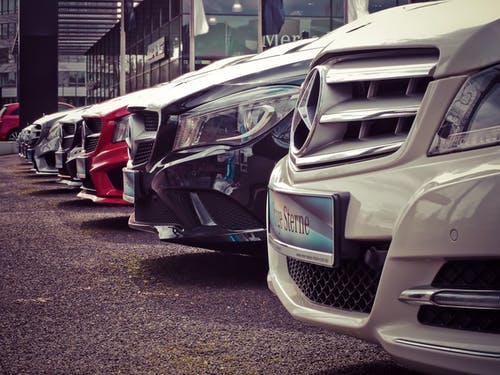When it comes to company cars and vehicles, the rules can be confusing. From tax implications to recent changes in the law, there's a lot to consider before deciding whether your business should own a vehicle or reimburse mileage. In this guide we break it all down for you.
What is a company vehicle?
A company vehicle is a car or van that is owned or leased by your business and used by employees or directors. If you use the vehicle for personal journeys, including commuting, HMRC classifies this as a benefit-in-kind (BIK), which means tax implications.
What are the tax implications of using a company car?
When a company car is used for personal travel, it becomes a taxable benefit to the employee. HMRC calculates the benefit based on:
- The list price of the car (including VAT and delivery) is also known as the 'P11D value'.
- The vehicle's CO2 emissions and how they affect your BiK percentage rate, details of which are available on the government website.
- Fuel type (electric, petrol, diesel, hybrid)
You'll pay Income Tax on the BIK value, and your business will pay Class 1A National Insurance. Use HMRC's company car tax calculator to estimate the cost: HMRC company car calculator.
What are the tax implications of using electric vehicles?
Electric cars have much lower BIK tax rates. For the 2024/25tax year, the rate was 2%. It rose to 3% from April 2025 and will continue to increase by 1% each year until the 2027/28 tax year, when it will be 5%. As the legislation currently stands, the BiK rate is set to increase to 7% in the 2028/29 tax year and to 9% in the 2029/30 tax year.
The costs of purchase or lease, insurance, and charging infrastructure still require careful consideration.
Is there a BiK to pay if the vehicle is only used for business?
If there's no private use at all, including commuting, then there's no BIK tax. But you'll need to provide detailed mileage logs and clear evidence to prove this to HMRC.
Does the business get tax relief on the car?
Yes. The business can claim capital allowances on the purchase or deduct the lease costs (if leasing). Again, the amount of relief depends on the vehicle's emissions.
Running costs (fuel, servicing, insurance, etc.) are also tax-deductible, but if the car is used privately, there may be restrictions or further tax due.
What are the tax changes relating to double cab pick-ups?
Until recently, many double cab pick-ups qualified as commercial vehicles, meaning they attracted lower tax. But HMRC changed its view in February 2024.
From 1 July 2024, most double cab pick-ups with a pay load under 1 tonne are now classed as cars for tax purposes if they are made available for private use. This significantly increases the BIK liability.
This rule change applies to:
- Benefit-in-kind tax calculations
- Capital allowances
More information from HMRC: Double cab pick-up guidance update.
What are the mileage rates I can claim if I use my own car?
If you use your personal car for business journeys, your company can reimburse you using HMRC's approved mileage rates:
- 45p per mile for the first 10,000 miles in a tax year
- 25p per mile thereafter
This method avoids BIK tax and is usually more cost-effective for directors of small companies. Just remember, commuting doesn't count as business mileage.
More on mileage rates: HMRC mileage allowance.
What factors should I consider when deciding whether to have a company or personal car?
As is often the case, the answer is 'it depends.' You will need to consider:
- How much business mileage do you do
- The type of car (emissions, list price, etc.)
- Whether it's electric, hybrid or petrol/diesel
- If you want to avoid BiK
- If you want the business to cover all running costs
- You want more flexibility with your choice of car
For low-emission electric vehicles, a company car can be very tax-efficient. For petrol or diesel models, owning the car personally and claiming mileage is often better.
Speak to DWilkinson&Company before making any big decisions. This is an area where the details really matter.
Need help deciding?
At DWilkinson&Company, we help business owners track their vehicle costs and understand what's working best for them financially. If you're unsure about the best vehicle route for your business, we can discuss your needs and show you the options available. Please get in touch here.


